What is Types Of Circuit Breakers
Circuit breakers are essential safety devices designed to interrupt the flow of electricity in a circuit, helping to protect both the electrical system and the connected electrical devices from damage due to overcurrents and short circuits. They are crucial components in any electrical infrastructure, serving residential, commercial, and industrial sectors where they ensure the safety of both the users and the equipment.
The primary function of a circuit breaker is to prevent excessive current from flowing through an electrical circuit, which could lead to overheating, electrical fires, or damage to electrical components. When a circuit breaker detects an overcurrent or a short circuit, it automatically opens the circuit and interrupts the flow of electricity. This action helps to protect the circuit and its components from potential damage by limiting the electrical current.
Circuit breakers come in various types and sizes, each catering to specific applications and voltage levels. They can be broadly categorized into two main groups: low voltage (LV) and high voltage (HV) circuit breakers. LV circuit breakers are commonly used in residential and commercial settings, such as homes and office buildings, providing protection against overloads and short circuits. HV circuit breakers, on the other hand, are typically used in industrial environments and are engineered to manage higher voltages, such as those found in manufacturing plants or utility infrastructure.
The operation of a circuit breaker is based on simple yet sophisticated principles. Inside the device, there is a mechanism that responds to the current-carrying capacity of the circuit. When the current exceeds this capacity, a bimetallic strip heats up and bends, causing the strip to move an arm to open the circuit. This arm disconnects the contacts, breaking the flow of electricity. The can be manually reset or automatically reset depending on the type of circuit breaker.
Types of Circuit Breakers
Circuit breakers come in several types to address the specific needs of different applications. Here are some common varieties:
-
Miniature Circuit Breaker (MCB): Often used in residential and light commercial applications, MCBs provide protection against overcurrent and short circuit conditions. They are typically rated up to 63 amps and can be easily reset after tripping.
-
Molded Case Circuit Breaker (MCCB): Suitable for more demanding applications in commercial and industrial settings, MCCBs can handle higher currents than MCBs. They offer a higher breaking capacity and are designed to protect larger circuits.
-
Residual Current Circuit Breaker (RCCB): This type of breaker is specifically designed to protect against electric shock by interrupting the power supply when it detects an imbalance in electrical currents.
-
Earth Leakage Circuit Breaker (ELCB): ELCBs are used to open a circuit if a leakage current is detected, protecting against electric shock. They are commonly used in older installations but can be found in some specialized applications.
-
Overload Relays: While not circuit breakers per se, overload relays protect against overheating of equipment by monitoring current and opening the circuit if an overload is detected. They are frequently used in motor protection applications.
How to choose Types Of Circuit Breakers
Selecting the right type of circuit breaker is crucial for ensuring safety and efficiency in any electrical system. When considering a purchase on Alibaba.com for your business needs, it's important to assess factors such as voltage level, current magnitude, environmental conditions, and specific application requirements.
Firstly, identify the voltage rating for your system—this will determine whether you need a low-voltage (LV), medium-voltage (MV), high-voltage (HV), or ultra-high-voltage (UHV) breaker. The voltage level must match that of your system to prevent equipment failure or fires.
Secondly, consider the circuit breaker's current-carrying capacity. This is often dictated by the system's main circuit rating voltage requirement. Ensure that the breaker you choose can handle the maximum current produced by your system without tripping prematurely or causing any operational issues.
Thirdly, evaluate the environmental conditions where the breaker will be installed. For instance, if it's intended for use in an outdoor setting or location with high humidity or moisture, you'll need a more robust and possibly waterproof breaker design.
Lastly, take into account the specific application needs. Whether it's for an industrial plant, a hotel, solar system installation, or home appliance, different breaker types provide varying benefits—like space-saving features for commercial environments or enhanced protective capabilities for specific applications like food shops or restaurants.
About Types Of Circuit Breakers on Alibaba.com
Alibaba.com stands out as a global marketplace that connects businesses with an extensive range of suppliers offering various types of circuit breakers suitable for all kinds of applications. Since its inception in 1999, Alibaba.com has been at the forefront of facilitating B2B transactions across over 190 countries by providing a platform where businesses can find nearly every product needed to keep their operations running smoothly. With an expansive selection from numerous suppliers worldwide, Alibaba.com makes it easier than ever for businesses to source high-quality circuit protection devices tailored to their specific requirements.
The platform's user-friendly interface simplifies the search process with advanced filtering options that help buyers navigate through an array of circuit breaker types based on protection level, application industry, number of poles, material composition, and more. This targeted approach ensures that each business can locate products that align with their technical needs without hassle.
Moreover, Alibaba.com offers Trade Assurance—a service designed to enhance buyer confidence by safeguarding payments until order fulfillment is verified. This commitment to secure transactions underlines Alibaba's dedication to serving businesses with reliability and integrity. Whether you're looking for miniature circuit breakers for your electronics or robust solutions like outdoor high-voltage circuit breakers for utility installations, Alibaba.com provides an accessible platform where you can explore options from trusted suppliers around the world without geographical limitations.
Common FAQs for Types Of Circuit Breakers
What types of circuit breakers are available for industrial use?
Industrial-grade circuit breakers are designed to handle high-voltage and high-current applications, such as motor control, power distribution, and heavy machinery operation. They include molded case circuit breakers (MCCBs), miniature circuit breakers (MCBs), and air circuit breakers (ACBs), each with specific features to suit various industrial needs.
How do I determine the right circuit breaker material for my business?
Consider the environment and demands of your business. Copper circuit breakers are ideal for applications requiring good electrical conductivity and are typically used in power distribution systems, while ABS or plastic circuit breakers may suffice for less demanding environments.
Can circuit breakers be used in both AC and DC applications?
Yes, there are specific types of circuit breakers designed for alternating current (AC) or direct current (DC) applications. It is important to select a circuit breaker that is compatible with the system's current and voltage specifications.
What does the 'number of poles' specification mean in circuit breakers?
The 'number of poles' specification refers to the circuit breaker's configuration, indicating the number of conductive elements within the switch or similar control device. It can be 1, 2, 3, or 4 with corresponding numbers that indicate the connection options available.
How does protection level affect my choice of circuit breaker?
Protection level determines the extent and type of damage a circuit breaker can withstand. It is crucial to match the protection level with your application's potential risks to ensure safety and longevity of the electrical system.
Are there circuit breakers that offer remote operation capabilities?
Yes, there are circuit breakers with remote operation capabilities. These are particularly useful in industrial settings where quick access to the breaker is needed for maintenance or repair purposes without having to physically manipulate the device.
What should I look for in a circuit breaker if it's intended for a hotel or hospitality setting?
For hotel or hospitality use, consider circuit breakers that offer both electrical safety and the ability to handle power surges. Features like overcurrent protection and ease of operation are also important due to the high number of guests and the potential for electrical load changes.
How do I select a circuit breaker based on the industry's applicable local service location?
It is essential to choose a circuit breaker that is compatible with the local service location's specific regulations and environmental conditions. Ensure that the voltage rating and breaking capacity meet the standards relevant to your region.
Can I find customized circuit breakers for unique applications?
Yes, suppliers on Alibaba.com may offer customized solutions tailored to your unique operational requirements, such as specific voltage ratings, special protective features, or unique applications.
What does 'on-off' and 'function' indicate in the context of circuit breakers?
'On-off' indicates whether a circuit breaker is open (off position) or closed (on). 'Function' indicates whether a circuit breaker is energized (on) or not (off), similar to the state of a light switch.
What does the 'material' specification refer to in the context of circuit breakers?
The 'material' specification refers to the construction material of the circuit breaker. This can include components made from materials like copper, ABS, or steel. The choice of material affects the durability and performance characteristics of the circuit breaker.

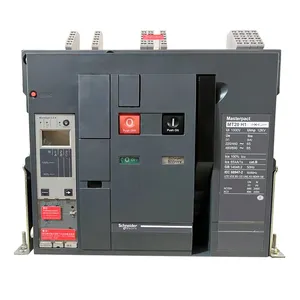

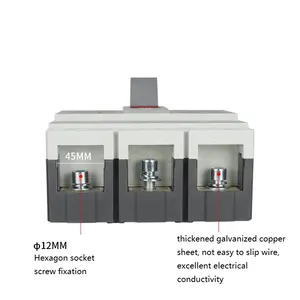









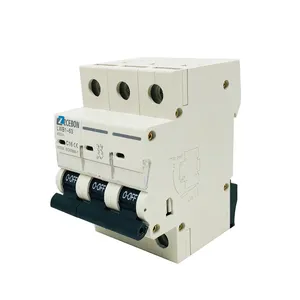


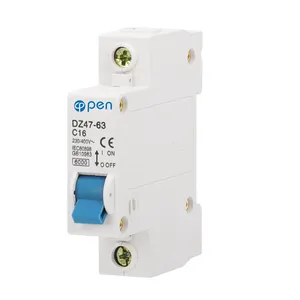


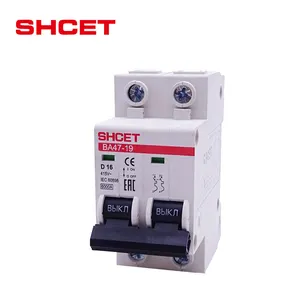

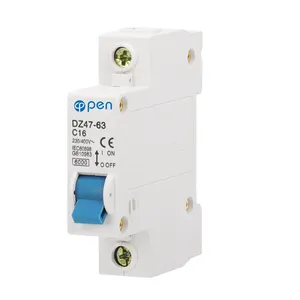



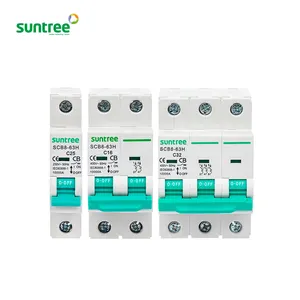

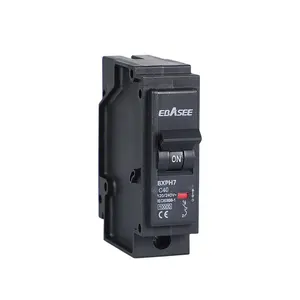


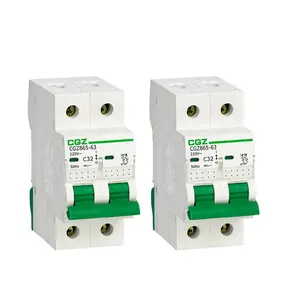




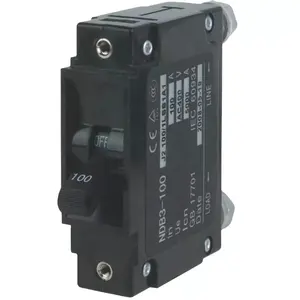

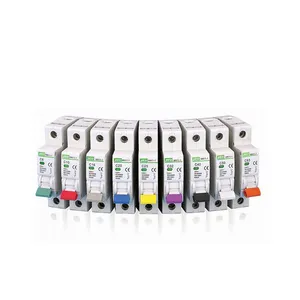




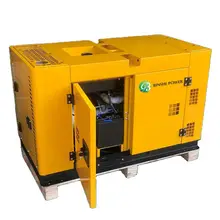



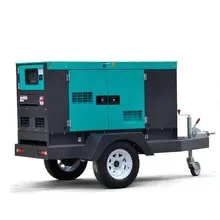


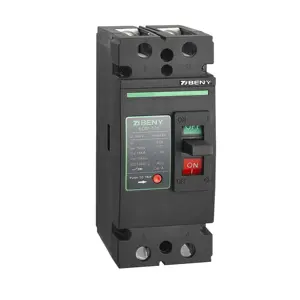






















 浙公网安备 33010002000092号
浙公网安备 33010002000092号 浙B2-20120091-4
浙B2-20120091-4